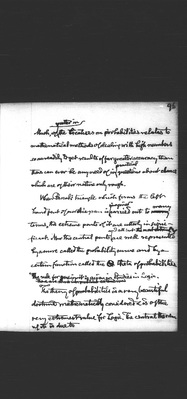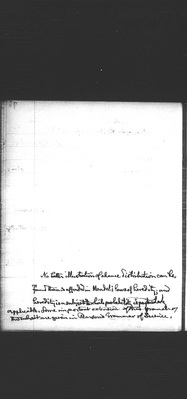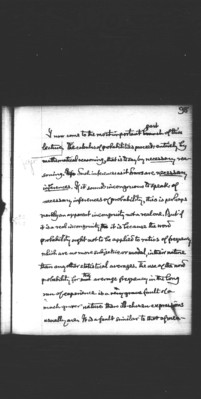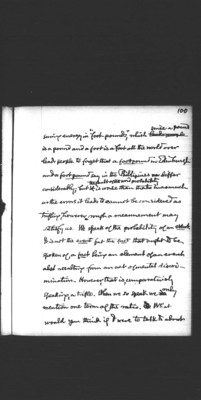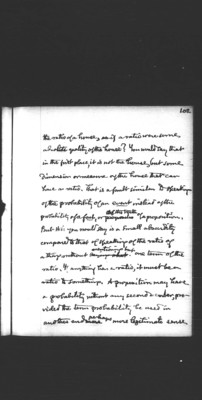Pages
51
96
Much of matter in the treatises on probabilities relates to mathematical methods of dealing with high numbers so as readily to get results of far greater accuracy than there can ever be any need of in practical questions about chance which are of their nature only rough.
When Pascal's triangle which forms the left hand part of our diagram is imagined carried out to many terms, the extreme parts of it are utterly insignificant. Now the central parts and all but the most extreme end are well represented by a curve called the probability curve and by a certain function called the theta of probabilities. The rule for using it is given in Studies in Logic.
The theory of probabilities is a very beautiful doctrine mathematically considered and is of the very extremest value for Logic. The central theorem of it is due to
52
No better illustration of chance distribution can be found than is afforded in Mendel's laws of heredity; and heredity is a subject to which probability is particularly applicable. Some important extensions of this branch of the subject are given in Pearson's Grammar of Science.
53
98
I now come to the most important part of this lecture. The calculus of probabilities proceeds entirely by mathematical reasoning, that is to say by necessary reasoning. Such inferences as it draws are necessary inferences. If it sounds incongruous to speak of necessary inferences of probability, this is perhaps merely an apparent incongruity not a real one. But if it is a real incongruity it is because the word probability ought not to be applied to ratios of frequency which are no more subjective or modal, in their nature than any other statistical averages. The use of the word probability for the average frequency in the long run of experience is a fault of a much graver nature than ill-chosen expressions usually are. It is a fault similar to that of measuring
54
100
energy in “foot-pounds,” which since a pound is a pound and a foot is a foot all the world over leads people to forget that a footpound in Edinburgh and a footpound say in the Philippines differ considerably; but the fault of the word probability is worse than that inasmuch as the errors it leads to cannot be considered as trifling, however rough a measurement may satisfy us. We speak of the probability of an event. It is not the event but the fact that ought to be spoken of, a fact being an element of an event resulting from an act of mental discrimination. However, that is, comparatively speaking, a trifle. When we so speak we only mention one term of the ratio. What would you think if I were to talk to about
55
102
the ratio of a house, as if a ratio were some absolute quality of the house? You would say that in the first place, it is not the house, but some dimension or measure of the house that can have a ratio. That is a fault similar to speaking of the probability of an event instead of the probability of a fact, or of the truth of a proposition. But this you would say is a small absurdity compared to that of speaking of the ratio of a thing without mentioning but one term of the ratio. If anything has a ratio, it must be a ratio to something. A proposition may have a probability without any second member, provided the term probability be used in another and perhaps more legitimate sense.
